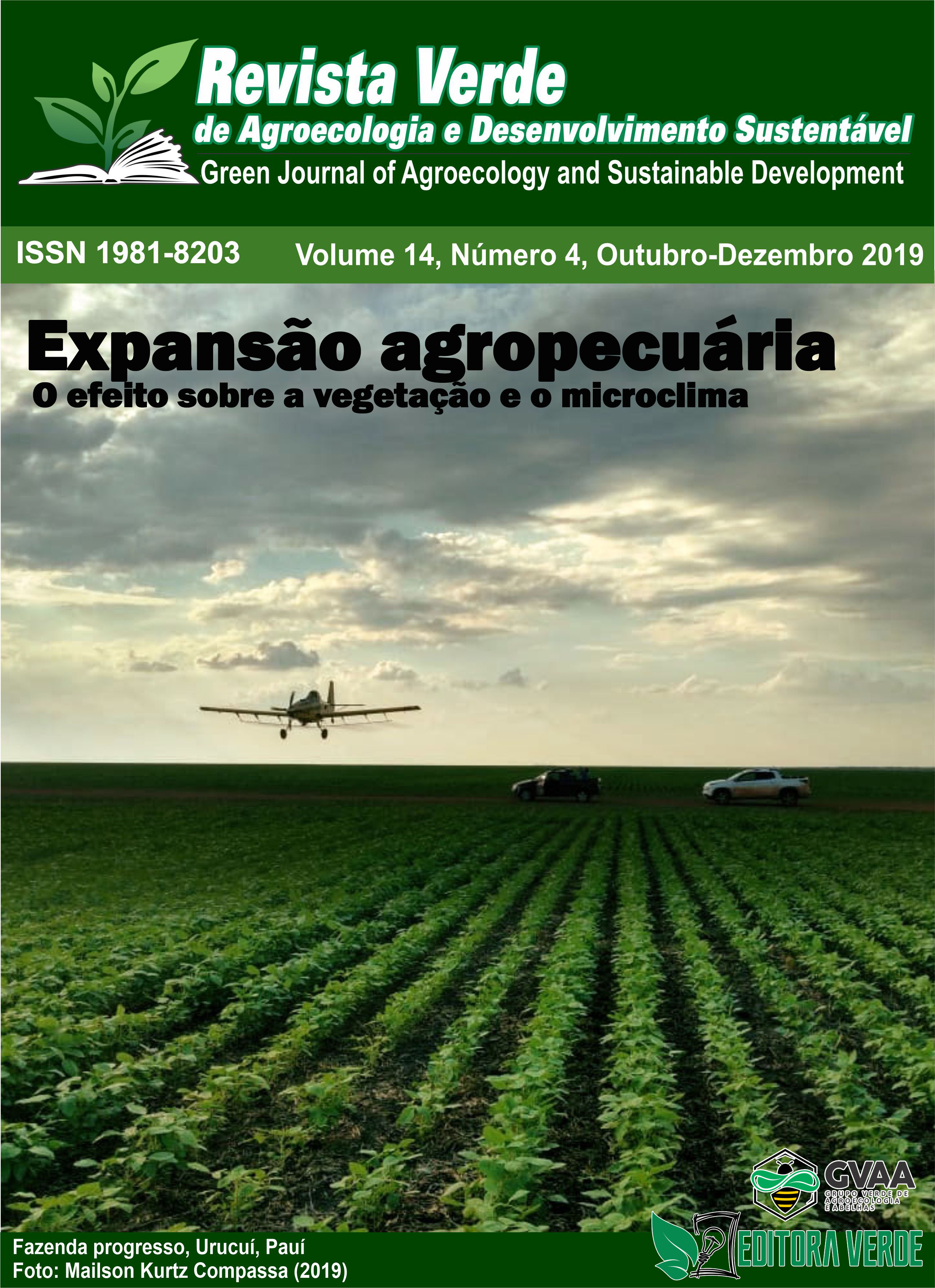National Program for Strengthening Family Farming: Promotion of Family Farming or Agribusiness in Brazil?
DOI:
https://doi.org/10.18378/rvads.v14i4.6514Keywords:
Agroecology, Food Insecurity, Pesticides, Rural Poverty, Public PolicyAbstract
The objective of this article is to discuss, as the PRONAF (National Program for Strengthening Family Farming) while it is a public policy of "Strengthening Family Farming" has contributed to the increase in the production of merchandise (commodities for export) in predominant areas of family farmers. Therefore, an investigation was carried out in areas of family agriculture not north of Rio Grande do Sul in 2017-18. Where, they will analyze some considerations on the agrarian structure, as well as the data of increase of the productivity and the area used in the production of the main export crops in the years 2000-2017. And also some considerations of the rural surroundings how this model of agriculture has degraded the environments, especially with the increase of the rates of application of pesticides to each year in Rio Grande do Sul and Brazil. As a result, it was observed that this model based on significant public financing has maintained rural poverty, indebtedness and dependence on some regions with strong primary production at the expense of other more industrialized regions. Finally, we present a discussion on the need to review the role of public policies that promote food security, recovery and environmental protection by promoting agroecology in areas with the presence of poor farmers in Brazil.Downloads
References
BACEN. Banco Central do Brasil. Anuário estatístico do crédito rural 1999-2010. 2010. Disponible en: <https://www.bcb.gov.br/?id=RELRURAL&ano=2010> Consultada: 30/Abr/2018.
BEROLDT, L. Políticas públicas para a agricultura e dinâmica institucional: as transformações capitalistas na agricultura do Vale do Taquari, Rio Grande do Sul, Brasil. 124f. (Doutorado em Desenvolvimento Rural) Universidade Federal do Rio Grande do Sul, Porto Alegre. 2010.
FEE. Fundação de Economia e Estatística Siegfried Emanuel Heuser. Indicadores Economicos. Porto Alegre - RS Porto Alegre, 2015. Disponible en: <https://www.fee.rs.gov.br/indicadores/> Consultada: 30/Abr/2018.
FIDA. Relatórios sobre pobreza e desenvolvimento. Organização das Nações Unidas. Brasília, Brasil. 98 p, 2014. Disponible en: Consultada: 30/Abr/2018.
FERNANDES, B. M. Movimento social como categoria geográfica. Terra Livre, n.15, p.59-86, 2015.
GEHLEN, I. Políticas públicas e desenvolvimento social rural. São Paulo em Perspectiva, v.18, n.2, p.95-103, 2004.
IBGE, Instituto Brasileiro de Geografia e Estatística. Censo Agropecuário 2006. Brasil, Grandes Regiões e Unidades da Federação. Rio de Janeiro, Brasil. 777p, 2015. Disponible en: Consultada: 30/Abr/2018.
JAMESON, F. As sementes do tempo. São Paulo: Ática, 1997.
NICHOLLS, C. Agroecología y resiliencia al cambio climático: principios y consideraciones metodológicas. Agroecología, v.8, n.1, p.7-20, 2013.
PRONAF: Ministério do Desenvolvimento Agrário. Lei da Agricultura Familiar.Brasilia, 2006. Disponible en: <http://www.mda.gov.br>. Consultado: 27/Sep/2018.
ROMANO, J. O. Política nas políticas: um olhar sobre a agricultura brasileira. Rio de Janeiro: Mauad Editora Ltda, 2009.
SARANDÓN, S. J. El desarrollo y uso de indicadores para evaluar la sustentabilidad de los agroecosistemas. En: Sarandón, S.J. (ed.) Agroecología: El camino hacia una agricultura sustentable. Ediciones Científicas Americanas: La plata, pp 350-394, 2002.
SCHNEIDER, S. Pobreza rural, desequilíbrios regionais e desenvolvimento agrário no Rio Grande do Sul. Teoria e Evidência Econômica, v.8, n.15, p.117-149, 2000.
SCHNEIDER, S. CAZELLA, A. A. MATTEI, L. Histórico, caracterização e dinâmica recente do PRONAF – Programa Nacional de Fortalecimento da Agricultura Familiar. In: SCHNEIDER, S.; SILVA, M. C.; MARQUES, P. E. M. (Orgs.). Políticas públicas e participação social no Brasil rural. Ed. Universidade/UFRGS: Porto Alegre, 2004. pp 21-49.
SCHNEIDER, S. CONTERATO, M. WAQUIL, P. Estilos de agricultura: uma perspectiva para a análise da diversidade da agricultura familiar. Ensaios FEE, v.31, n.1, p.149-186, 2011.
SEN, A. Desenvolvimento como liberdade. Editora Companhia das Letras: São Paulo, 461p, 2000.
TRENTIN, I. C. L. Desenvolvimento Regional e Agroecologia no Rio Grande do Sul/Brasil. Investigaciones Geográficas, v.49, p.99-115, 2015. 10.5354/0719-5370.2015.37516.
VEIGA, J. E. O Brasil rural ainda não encontrou seu eixo de desenvolvimento, Nead, Série Estudos Avançados, v.15, n.43, p.101-119, 2001.













